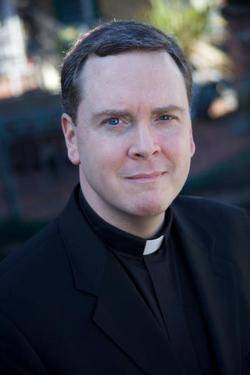If you are familiar with the spirituality of St. Ignatius Loyola, the founder of the Jesuits, then you will likely know his famous “Rules for Discernment” or, to put it simply, his method of decision-making. James Martin, S.J., once described this method in our pages: “Discernment for St. Ignatius means being aware that God wants us to make good decisions, that God will help us make good decisions—but that we are often moved by competing forces: ones that pull us toward God and ones that push us away.”
Discernment, then, involves entering into a spirit of prayerful questioning, using the imagination to envision the various alternatives and to weigh them with both our heads and hearts. What feels more like an act of faith? What feels more like an act of fear? What opens my heart to the world in generosity? What closes me in on myself and narrows my field of vision? What feels more like an act of love? What feels more like a cry for love?
Sometimes this method of questioning is called weighing the lights and shadows in our lives. It is true, of course, that no human life is all light or all shadow. It is also true that discernment never leads to certainty precisely because certainty is the opposite of faith. If we are certain, then we have no need for faith. Discernment is rather a process for choosing acts of faith that are as well-informed and truthful as possible.
It will come as no surprise to readers of this magazine that America Media is experiencing a major transformation, evolving from a single print magazine to a multiplatform media ministry. In print, on the web, through radio, events and film, America Media is working to realize anew in the 21st century the vision of our founders. I am pleased to say that this process is not a matter of our mere survival, but of our prospering. America Media, unlike many traditional magazines, is financially sound. This autumn we will move to a new state-of-the-art headquarters and will add additional talent to our mostly lay staff. The Society of Jesus in the United States and Canada has also made America Media a top priority and generously placed several young Jesuits at the service of this apostolate.
All of this growth and change is at your service. America Media is more than a media organization: We are a diverse community of leaders, scholars, politicians, businessmen and women, clergy, teachers, volunteers and community members who are committed to pursuing the truth in love; committed to a civic and ecclesial conversation that is intelligent, balanced and above all charitable. It is in that spirit of community that I invite you into this discernment about our future. What are the best ways that we can continue to serve you? As a reader, audience member, friend or benefactor, what do you see as the lights and shadows in our work? What would you encourage us to do more of? What might you discourage us from ever doing again?
Many of you have been a part of this community for decades. As we enter into this discernment about how to adapt our tradition and charism to a new century, we need your experience and prayerful insight. So I encourage you to let us know what you think. You can send us an email at newamerica@americamedia.org. I assure you that we will prayerfully consider what you have to say.
These are exciting days for this century-old ministry. A new America is coming. I invite you to be a part of it. And, as always, I am deeply grateful for your continued support.








